Although we haven’t reached peak surveillance, we’ve reached peak indifference to surveillance. There will never be another day in which fewer people give a shit about this because there’ll never be a day in which fewer people’s lives have been ruined by this.
Art, Design, and the Future of Privacy
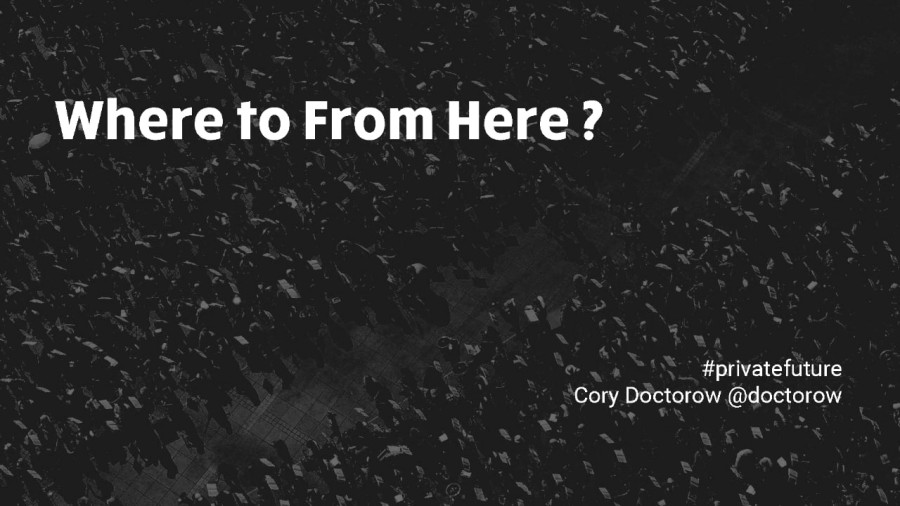
Where to From Here?
presented by Cory Doctorow
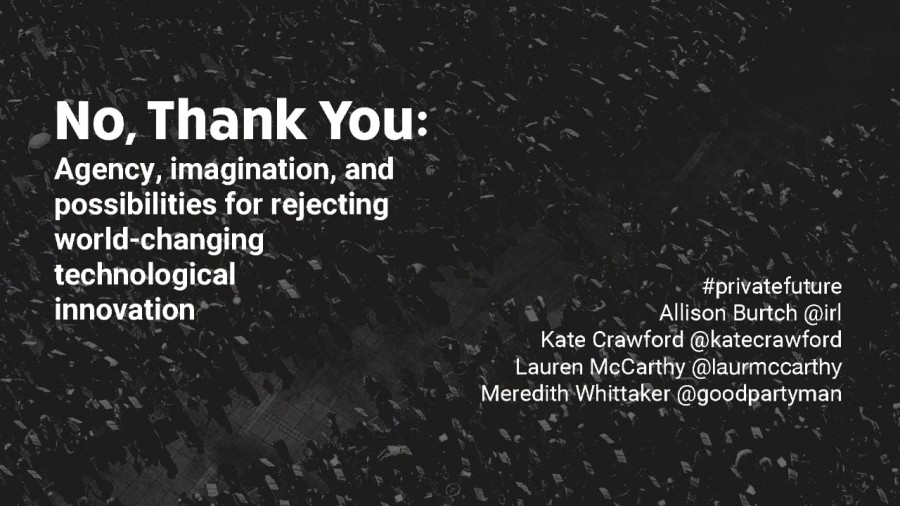
No, Thank You: Agency, Imagination, and Possibilities for Rejecting World-Changing Tech
presented by Allison Burtch, Kate Crawford, Lauren McCarthy, Meredith Whittaker
We’re trying to say it’s on you, it’s your responsibility, figure this out, download this, understand end-to-end encryption, when it’s a shared problem and it’s a communal problem.
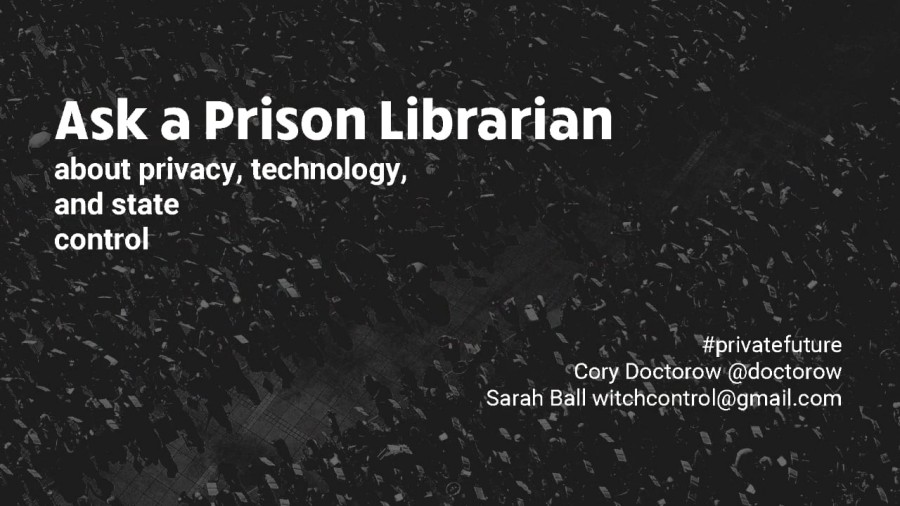
Ask a Prison Librarian about Privacy, Technology, and State Control
presented by Cory Doctorow, Sarah Ball
What does it mean to be private when you’re in a place where you have no right to privacy but are ironically deprived of the thing that makes your privacy go away?
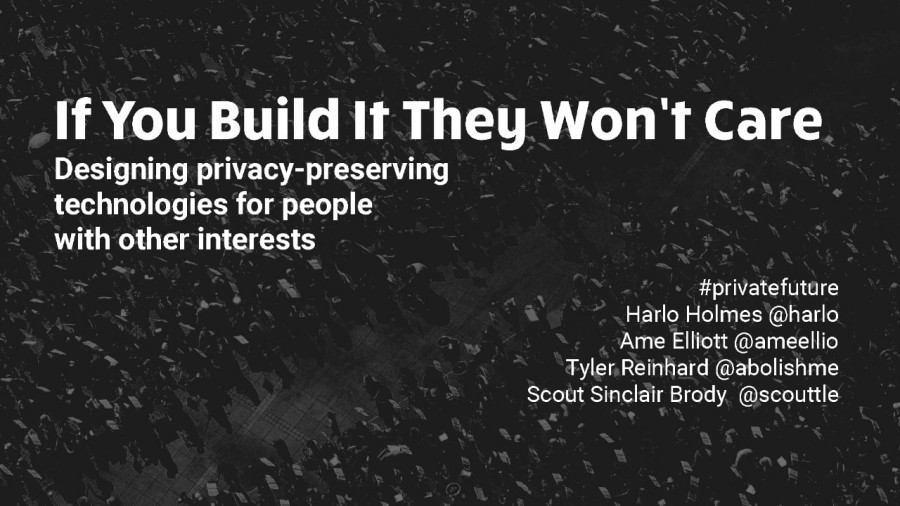
If You Build It, They Won’t Care: Designing Privacy-Preserving Technologies for People with Other Interests
presented by Ame Elliot, Harlo Holmes, Scout Sinclair Brody, Tyler Reinhard
I think that privacy is something that we can think of in terms of a civil right, as individuals. […] That’s a civil rights issue. But I think there’s also a way to think about it in terms of a social issue that’s larger than simply the individual.
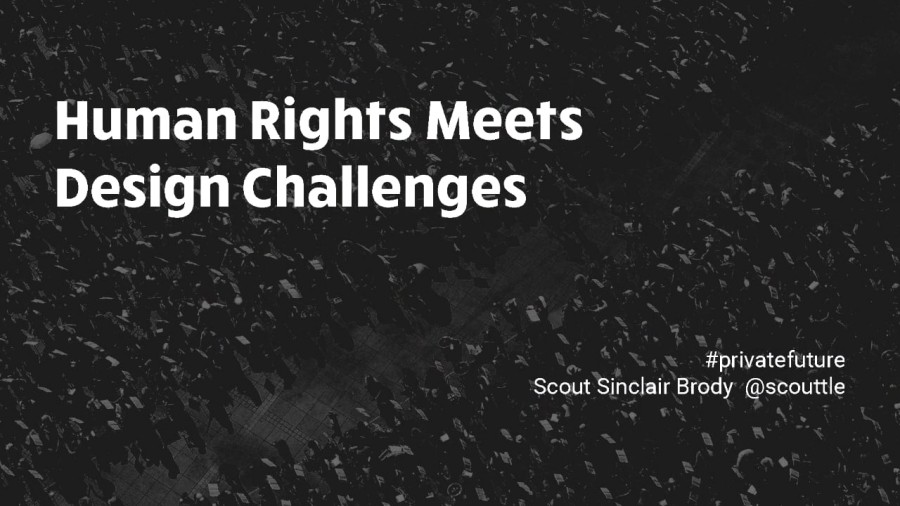
Human Rights Meets Design Challenges
presented by Scout Sinclair Brody
How do we take this right that you have to your data and put it back in your hands, and give you control over it? And how do we do this not just from a technological perspective but how do we do it from a human perspective?
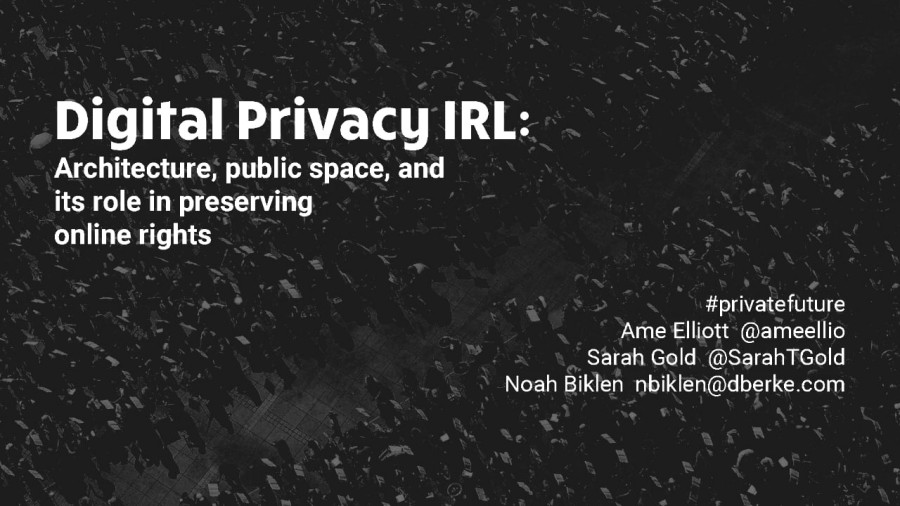
Digital Privacy IRL
presented by Ame Elliot, Noah Biklen, Sarah Gold
As we’re giving our homes this new layer of smartness and intelligence, we’re giving away its ownership to very large organizations. And as we become a generation of renters, what I’m very interested in is how do landlords respond to that?
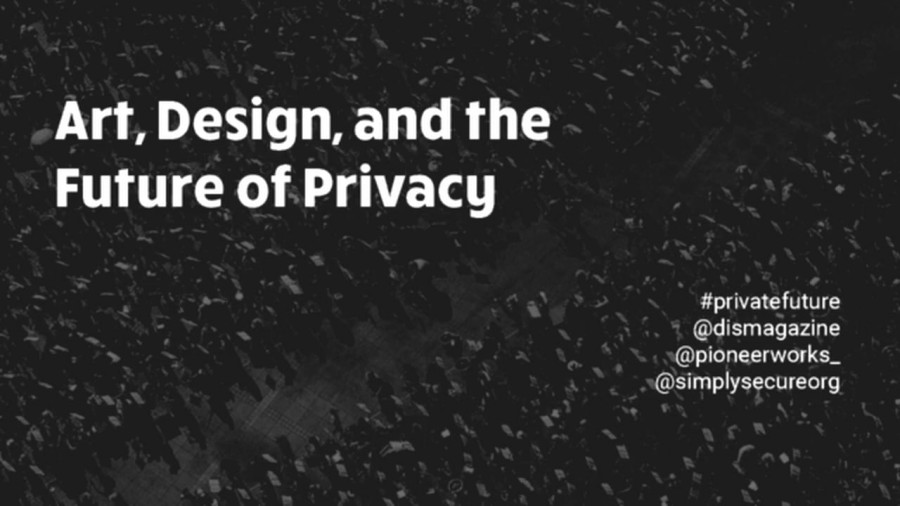
Art, Design, and the Future of Privacy Introduction
presented by Marvin Jordan, Meredith Whittaker
We have to know what we want. We have to imagine how it looks. We have to understand how it feels, how it smells, how it functions, before we can design it. Before we can code it. Before we can implement it, and before we can sell it.

You don’t need a CS degree to know how [technologies] impact your life, so how do we start examining those impacts and then leading with an understanding of what we actually want to build, how we want to build it, and letting the imaginative capabilities of all of these people drive that.
